Uncle Ho's advice to journalists
(Baonghean.vn) - During his revolutionary activities, President Ho Chi Minh left behind a valuable journalistic legacy of thousands of articles covering all the broad issues of the revolution and social life. Not only that, he also taught journalists how to write so that their journalistic works achieve the highest efficiency.
During his revolutionary career, President Ho Chi Minh always considered the press and journalists as a part of the revolutionary cause, a sharp weapon in the struggle for national independence and building a new life for the people.
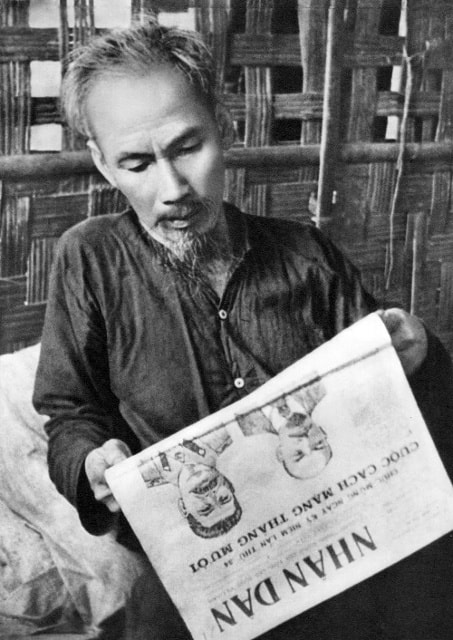 |
| Uncle Ho read Nhan Dan newspaper. |
Uncle Ho pointed out: “Journalists are also revolutionary soldiers. The pen and paper are their sharp weapons.” He said: “The article is a revolutionary proclamation.” Therefore, the first thing that any writer on the revolutionary press front must clearly understand is the goal and mission of the revolution. As Uncle Ho once said: “If you shoot, you must have a target, you must have a target.” That means the pen must be attached to the object.
His life of work is inseparable from journalism. Journalists are revolutionaries and for the sake of revolution. From his first work “The Rights of Colonial Peoples” published in the Nhân Đạo newspaper on June 18, 1919 to his last work “Letter in reply to the US President” published in the Nhân Dân newspaper on August 25, 1969, President Ho Chi Minh worked in journalism almost all his life, leaving behind more than 2,000 articles of various types on many topics, genres, structures, styles and forms of expression, with the sole purpose of serving the working people, serving socialism, serving the struggle for national unification, and for world peace.
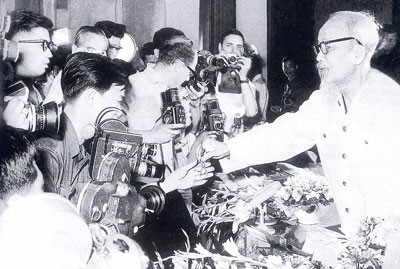 |
| Uncle Ho with reporters. Photo archive |
President Ho Chi Minh's guiding thoughts for the country's revolutionary press and for journalists are summarized in 5 sentences: Who to write for? What to write for? What to write? How to write? How to write? , but not everyone can do it, creating a unique and distinctive press style named after Ho Chi Minh.
The target that Uncle Ho aimed at was to serve the working people, serve socialism, serve the unification of the country and world peace. In May 1949, in a letter to the first Huynh Thuc Khang journalism class in the Viet Bac resistance zone, Uncle Ho clearly stated: "The task of the newspaper is to propagate, agitate, train, educate and organize the people to bring them to a common goal."
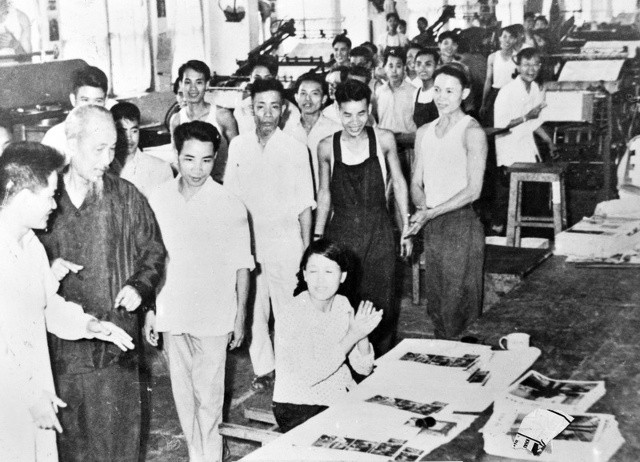 |
| President Ho Chi Minh visited the staff and workers of Tien Bo Printing Factory in Hanoi, May 11, 1959. |
At the 2nd Congress of the Vietnam Journalists Association (April 16, 1959), Uncle Ho commented that the advantages of journalists are fundamental but there are still many shortcomings. One of those shortcomings is that they “do not have a firm grasp of political issues”. Uncle Ho advised: “All journalists must have a firm political stance. Politics must be mastered. If the political line is correct, then other things can be correct”.
In his speech at the 3rd Congress of the Vietnam Journalists Association (September 8, 1962), Uncle Ho said: "My experience is this: Every time I write an article, I ask myself: Who am I writing for? What is the purpose of writing? How to write so that the general public can easily understand, and be concise and easy to read."
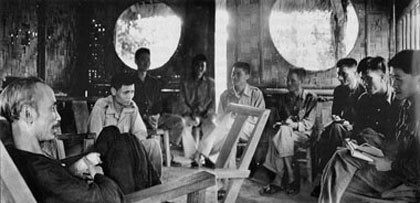 |
| Uncle Ho worked with the Truth newspaper in Viet Bac. |
According to Uncle Ho, it is to write about the good things of our people, our soldiers, and our friends. At the same time, to criticize our shortcomings, the shortcomings of our cadres, the people, and the soldiers. Write for workers, farmers, and soldiers, write for all classes of Vietnamese people, without distinction of age, gender, religion, or political party.
The person who makes it clear must write at the right level for the audience, write clearly and neatly. The teacher must learn how to speak, the language of the masses, do not be greedy to use words, do not use words that you do not know well, use words that our language has, only use words when absolutely necessary, so that the masses can all understand, all believe, all are determined to follow your call. Writing must be practical, timely, "speak with evidence, tell with proof", that is, say where that matter is, how, when, how it was born, how it developed, what were the results?
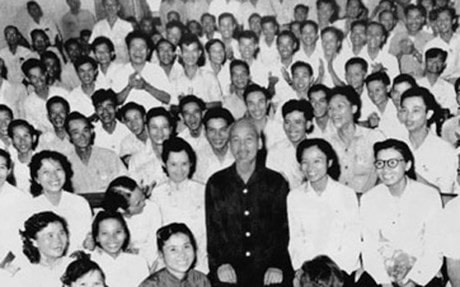 |
| President Ho at the 3rd Congress of the Vietnam Journalists Association (September 1962) |
Each of his articles is naturally and smoothly suitable in language and expression to the level of awareness, understanding and way of thinking of each subject. They all originate from real life with numbers and events that have been considered, checked and selected, bringing readers and listeners a high amount of accurate information.
Therefore, his thoughts, whether on issues of daily life, fighting, working or major issues of the country and the times, are conveyed in a profound, easy-to-understand, easy-to-remember way, with strong persuasive power.
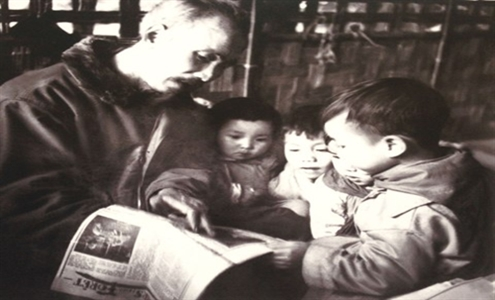 |
| Uncle Ho read the newspaper to children at a children's camp in Viet Bac, 1950. |
Uncle advised journalists: “When a revolutionary encounters difficulties, he must overcome them, not give up on them. Some people only want to do something to leave their name forever. They want to write articles to show off, to publish their articles in major newspapers. That is also not right. Those shortcomings are all born of individualism. They do not see that: doing anything useful for the people, for the revolution is glorious. If you want to progress, if you want to be good, you must try to learn, work hard to practice. Do not be self-centered or think that you are great. Self-centered means conceited, and conceited is a fierce enemy, it blocks our path of progress.”
On the occasion of the 92nd anniversary of Vietnam Revolutionary Press Day, recalling Uncle Ho's advice to the press so that the revolutionary journalists can learn his journalism methods and train their mettle and qualities to serve the Party, State and people, clearly demonstrating the spirit of "Studying and following Ho Chi Minh's ideology, morality and style"./.
Peace
(Synthetic)
| RELATED NEWS |
|---|

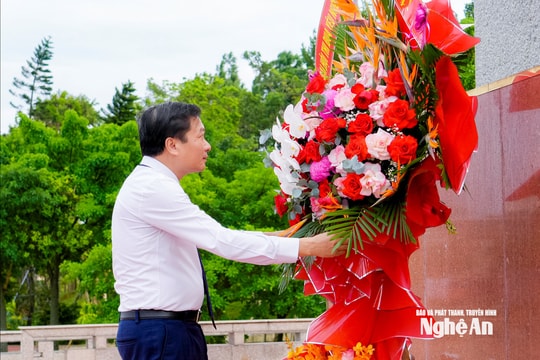
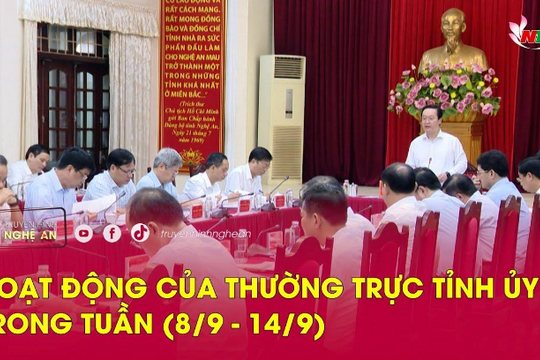
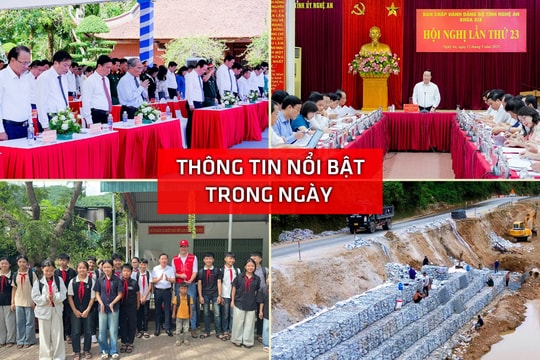
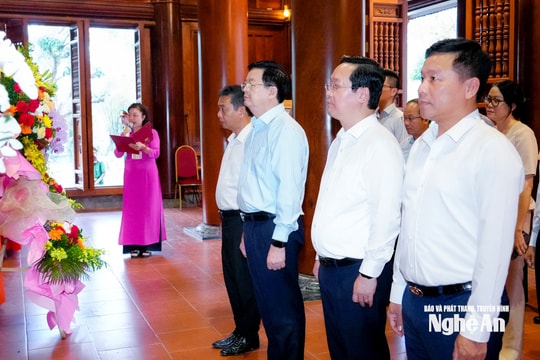
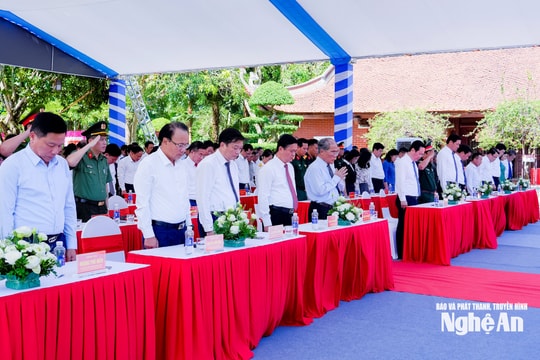
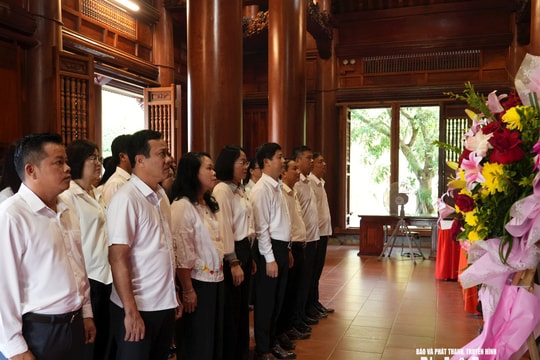
.jpg)
